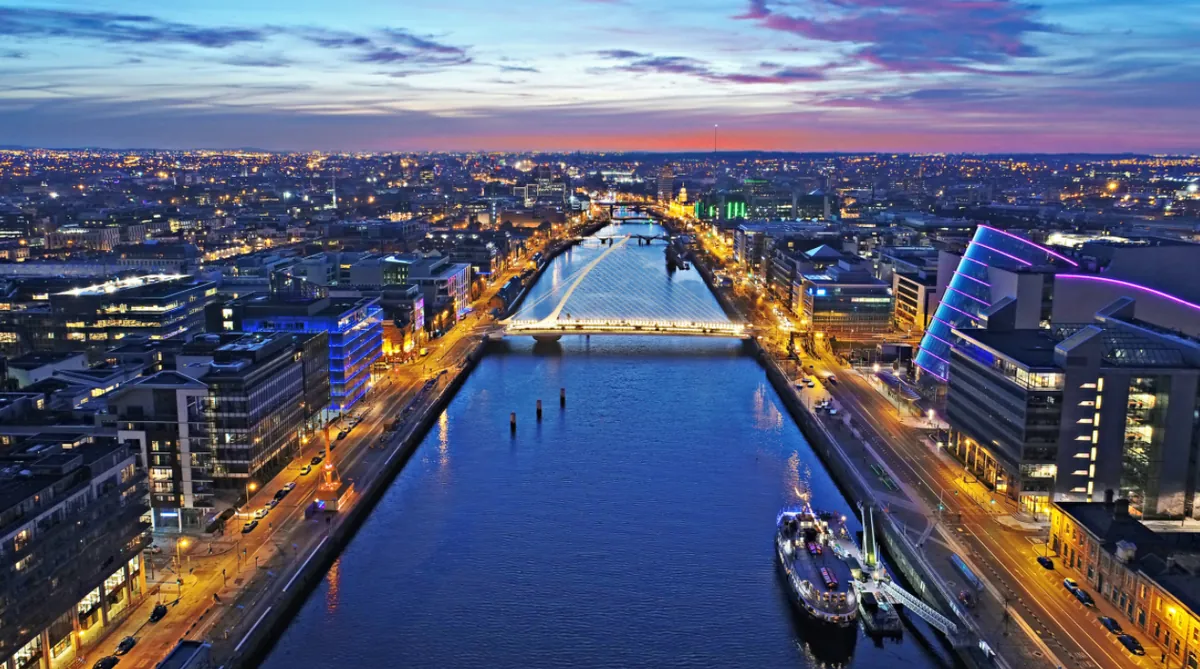In a significant development for Ireland's tech sector, local authorities have rejected Google's plans for a substantial data centre on the outskirts of Dublin. The decision underscores the growing tension between technological advancement and infrastructure limitations in the country.
The proposed facility, spanning nearly 800,000 square feet—equivalent to approximately 10 football pitches—was denied approval by South Dublin County Council. The primary concern cited was the potential strain on Ireland's already burdened electricity network, raising fears of possible blackouts.
Ireland has become a major hub for data centres, hosting over 80 such facilities. These centres currently consume more than a fifth of the country's electricity, reflecting the significant impact of the tech industry on national infrastructure. Google's European headquarters, established in Dublin in 2003, is part of this burgeoning tech landscape that has transformed areas like Silicon Docks into major business districts.
The council's planning department highlighted a "lack of detail" in Google's proposal regarding the facility's impact on power supply once operational. While the tech giant suggested that 20% of the site's energy needs would be met by solar panels, officials deemed this insufficient, pointing to a goal of 100% renewable energy generation.
Environmental groups and local representatives have voiced concerns about the project's potential consequences. Seán O'Callaghan from An Taisce, The National Trust for Ireland, warned of increased pressure on the "already strained electricity grid in the Dublin region." Similarly, local politician Gino Kenny and others expressed worry about the risk of blackouts in the area.
This decision comes against the backdrop of Ireland's ambitious renewable energy targets, aiming for 70% of electricity from renewable sources by 2030. The country's grid operator, EirGrid, has previously cautioned about the risk of "rolling blackouts" if the expansion of foreign tech companies continues unchecked.
The rejection of Google's plan aligns with a de facto moratorium on new data facilities in the Dublin area, implemented in 2022 to alleviate pressure on the electricity network. This policy reflects the challenges faced by Ireland in balancing its attraction as a tech hub—partly due to its strategic location and favorable 12.5% corporation tax rate—with the need for sustainable infrastructure development.
Google's proposed investment was part of a broader trend among tech giants to expand their physical infrastructure, particularly to handle the demands of artificial intelligence (AI) software. Products like Google's Gemini require substantial processing power, driving the need for increased data centre capacity.
Notably, in July 2024, Google acknowledged a nearly 50% increase in its greenhouse gas emissions over the previous five years, coinciding with its data centre expansion. This admission came despite the company's commitment to achieving net zero emissions by 2030 and powering its data centres with carbon-free energy.
The decision to block the data centre plan, while potentially impacting job creation—the project was expected to generate 800 construction jobs and 50 permanent roles—reflects a growing awareness of the need to balance economic development with environmental and infrastructure considerations in Ireland's rapidly evolving urban landscape.
"The applicant has stated that they will use the existing connection to the grid for the expansion of the data storage facility. This would have a significant impact on the capacity of the grid in the local area and could lead to blackouts in the local area."
As Dublin continues to grapple with rapid urban development and population growth, decisions like this highlight the complex challenges faced by cities at the forefront of technological innovation. The outcome of this case may set a precedent for how Ireland and other countries manage the expansion of data-intensive industries in the context of sustainable development and infrastructure capacity.
